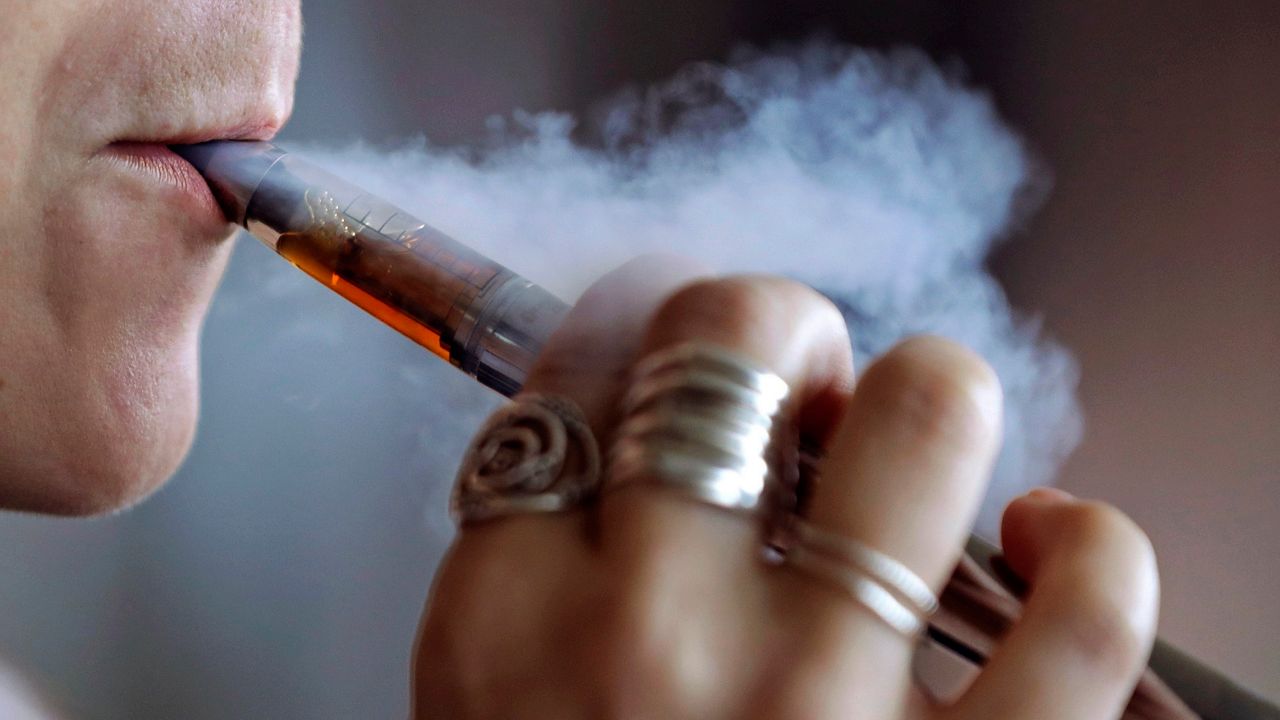South Portland may become the next Maine community to ban the sale of flavored tobacco.
Under a proposed ordinance, violators would receive a $500 fine that could jump to $2,500 per subsequent violation.
Included in the proposed ban are tobacco products with “any taste or smell relating to fruit, menthol, mint, wintergreen, chocolate, cocoa, vanilla, honey, or any candy, dessert, alcoholic beverage, herb, or spice.”
The city council will hold a hearing Tuesday.
The ordinance is being proposed as a way to prevent young people from becoming addicted to nicotine.
The U.S. Centers for Disease Control and Prevention states online: “Nearly 9 out of 10 adults who smoke cigarettes daily first try smoking by age 18, and 99% first try smoking by age 26.”
“The only way we’re going to get new tobacco users is if they’re caught young, and flavored tobacco is an effort to do that,” City Councilor Misha Pride said at an Oct. 11 workshop.
South Portland is following state and national trends.
In September, electronic cigarette maker Juul agreed to a $440 million lawsuit settlement with 33 states, including Maine. According to Spectrum News partner The Maine Monitor, the suit alleged Juul targeted minors in its marketing.
Maine opted out of receiving $11 million of the settlement because a condition of the settlement held that school districts would be barred from pursuing their own lawsuits, the Monitor reported.
South Portland’s attempted ban in 2019 stalled, in part, because no other Maine community had yet done so, Pride said in October.
However, Portland banned flavored tobacco earlier this year following a unanimous vote of its city council.
“Now that our largest neighboring community has one of these ordinances in place and it’s clear the FDA isn’t moving at the speed we’d like, I’m very much in favor of enacting a ban on flavored tobacco,” Pride said Oct. 11.
So far, the FDA has only officially proposed a ban on menthol cigarettes and flavored cigars, according to a statement in April. As of August, the FDA was still seeking public comment on the proposal.
A ban on flavored tobacco products will take effect in Bangor in January. Brunswick has also instituted a ban, but not everyone is happy with it.
Jeff Smith, manager of Primo Glass, a vape and head shop, said Brunswick’s ban hurts his livelihood.
“Absolutely,” Smith said. “(Flavored tobacco) was about half of our business.”
Without similar bans surrounding communities, Brunswick’s ban is probably ineffective, Smith believes. Consumers will just go to another town to get flavored tobacco, leaving his business to suffer.
“That would be a level-headed idea, if they would do the whole state,” he said. “I would feel better about it personally in my shop.”
NO HARD DATA ON EFFECTIVENESS
Spectrum News was unable to find any study examining the benefits of flavored tobacco bans.
A 2020 study produced by George Mason University examining a 2009 ban by the FDA on flavored cigarettes – which did not include menthol cigarettes, e-cigarettes or other flavored products – found that ban had an impact on youth.
“In 2017, the predicted probability of youth and young adult cigarette smoking were reduced by 43% and 27%, respectively, compared to the model predicted probability in absence of the ban,” the study’s authors wrote. “The predicted probability of menthol use was reduced by 60% and 55% for youth and young adults, respectively.”
Val Johnstone, program coordinator for Portland Health Department’s tobacco prevention team, said there is no plan to survey youths in Portland to gauge the impact of the ban.
She added that Maine Integrated Youth Survey, conducted every two years, provides data on usage of tobacco products statewide, and she hopes the data will show fewer youths using flavored tobacco products.
Johnstone said anecdotal evidence gathered through working with youth and community groups has indicated the ban is helping in Portland.
“It does seem like it’s creating a barrier,” she said.
A 2022 survey cited in a CDC report shows more than 14% of high-school age youths use e-cigarettes. Of those, 85% are using flavored tobacco products.
“It’s definitely a tool used by the tobacco industry to get young people addicted,” said Johnstone.
South Portland’s targeting of mint products – such as menthol or wintergreen – in the language of a ban is telling, Johnstone said, because those flavors are found in cigarettes and chewing tobacco, in addition to e-cigarettes.
Johnstone said studies also show 90% of smokers started before age 21, the minimum legal age to buy tobacco products. Most likely, she said, youths are getting the products indirectly from family members or friends.
“The bottom line is, even if our trusted retailers are doing their roles, somehow these young people are still getting their hands on these tobacco products,” Johnstone said.



